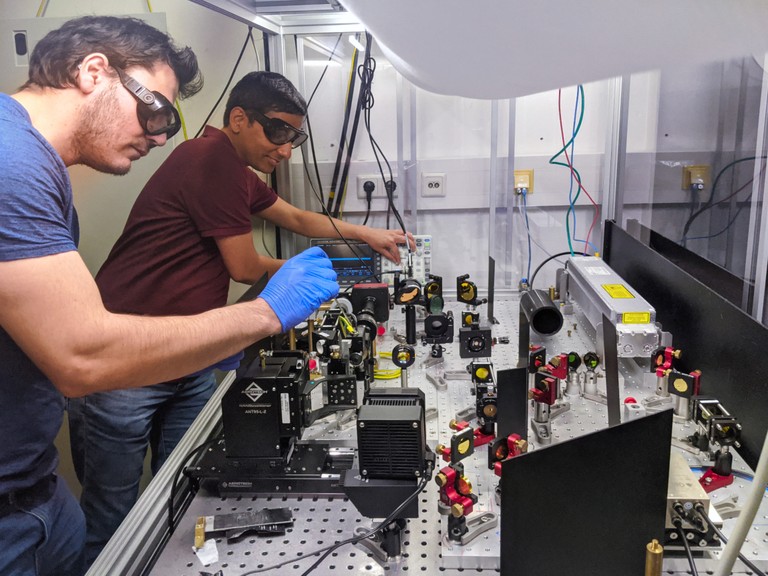In Optics Express, scientists led by Dieter Meschede report on building optical fiber filters that are not only extremely compact and stable, but also color-tunable.
Optical resonators or filters are important components cutting out very narrow spectral lines from white light sources. In the simplest case such filters are built from two opposing mirrors tossing light back and forth as precisely as the pendulum of a clock work. The color of the filtered light is set by the mirror separation. By glueing the fiber ends carrying the mirrors into a common ferrule which can be stretched by means of a piezo crystal, the authors were able to control the mirror separation.
Miniaturized highly stable optical precision filters can be used for a variety of applications, e.g. cavity-based sensing techniques, optical filters or quantum light-matter interfaces.
The project is funded within the FaResQ project of the program key components for quantum technology of the Federal Ministry of Research and Technology (BMBF). The infrastructure for manufacturing and processing the fibers takes place in the Bonn Fiberlab, which is operated by ML4Q and is dedicated to the manufacturing and integration of fiber-optic components required by ML4Q. More information on the facility, its equipment, products, and involved groups can be found on the Fiber Lab website.
View the full text of the press release in Englisch and German!
Story coverage on Science Daily
Publication: Carlos Saavedra, Deepak Pandey, Wolfgang Alt, Hannes Pfeifer, and Dieter Meschede: Tunable fibre Fabry-Perot cavities with high passive stability, Optics Express, https://doi.org/10.1364/OE.412273
Browse the ML4Q News Archive

Carlos Saavedra (left) and Deepak Pandey (right) prepare the optical microfilter for test measurements. © University of Bonn